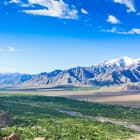
Jul 12, 2025 • 8 min read
Pick a wellness experience in India that works for you with this guide to treatments and the best places to try them.

Jul 12, 2025 • 8 min read
Pick a wellness experience in India that works for you with this guide to treatments and the best places to try them.

Jul 12, 2025 • 7 min read
Follow these 23 tips on etiquette and customs in Sri Lanka and your visit to this pearl in the Indian Ocean will be both full and respectful.

Jul 12, 2025 • 10 min read
Wildlife experiences in Sri Lanka are truly magical. Here are the island's best safari lodges, hotels and tented camps.

Jul 12, 2025 • 10 min read
From beautiful beaches to culture-packed cities, visit these top places in Sri Lanka for an unforgettable trip.

Jul 12, 2025 • 6 min read
A to-the-point, excellently curated itinerary that delivers the best of Rome in a single day.

Jul 11, 2025 • 7 min read
The Houston dining scene mirrors its urban sprawl: ever-expanding. Here’s where to find the best traditional and fusion food in Houston.

Jul 11, 2025 • 9 min read
Beat the Big Apple heat with a trip to one of the area's many beaches and pools. Plus, try nearby food and attractions.

Jul 11, 2025 • 8 min read
If you're looking for a leisurely overnight rafting adventure in the US, we've got you covered. Here's what you should know before you go.
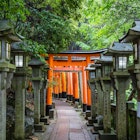
Jul 11, 2025 • 5 min read
Get to know Kyoto for free with these top experiences that won't cost you a thing.
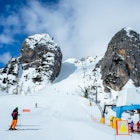
Jul 11, 2025 • 7 min read
The 2026 Winter Olympics in northern Italy will be the most geographically widespread games ever. Here’s all you need to know as you plan your trip.

Jul 11, 2025 • 10 min read
From culture-packed coastal towns and cities to the iconic Red Centre, here are the best places to visit in Australia.

Jul 11, 2025 • 8 min read
We've planned you a weekend in Kansas City: barbecue, boutiques and a bit of quirk.
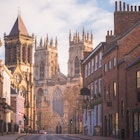
Jul 11, 2025 • 11 min read
With its striking history, medieval center and foodie connections, York is one of northern England’s must-see cities. Here are the best things to do.

Jul 11, 2025 • 11 min read
College towns are perfect for a quick weekend escape, and packed with plenty of entertainment, sports, arts, culture and charm.
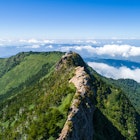
Jul 11, 2025 • 7 min read
Explore fascinating Shikoku, well off the standard trail of most visitors to Japan. Peek into the lives of the locals on Japan’s fourth largest island.

Jul 11, 2025 • 8 min read
Kansas City is not flashy – but it will win you over, with warmth, with soul, with just the right amount of charm. Here’s a guide for first-time visitors.
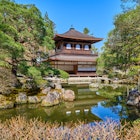
Jul 11, 2025 • 6 min read
Even in an expensive city like Kyoto, you can find deals to help you enjoy your trip. Here are our top tips for a budget-friendly experience.

Jul 11, 2025 • 6 min read
A trip to Kyoto will make unforgettable memories for little one. Here’s a full guide to family-friendly Kyoto activities and traveling to Kyoto with kids.

Jul 10, 2025 • 8 min read
Experience the best of Kazakhstan in Central Asia with this guide to the top things to do.

Jul 10, 2025 • 14 min read
These underrated cabin destinations deliver all the cozy vibes and natural beauty, minus the traffic and tourist traps

Jul 10, 2025 • 8 min read
Explore these ruins to grasp the extent of the Roman Empire, from Western Europe to North Africa to the Middle East.

Jul 10, 2025 • 10 min read
California may be besotted with cars but that's not the only way to see the Golden State. Here's everything to know about getting around California.